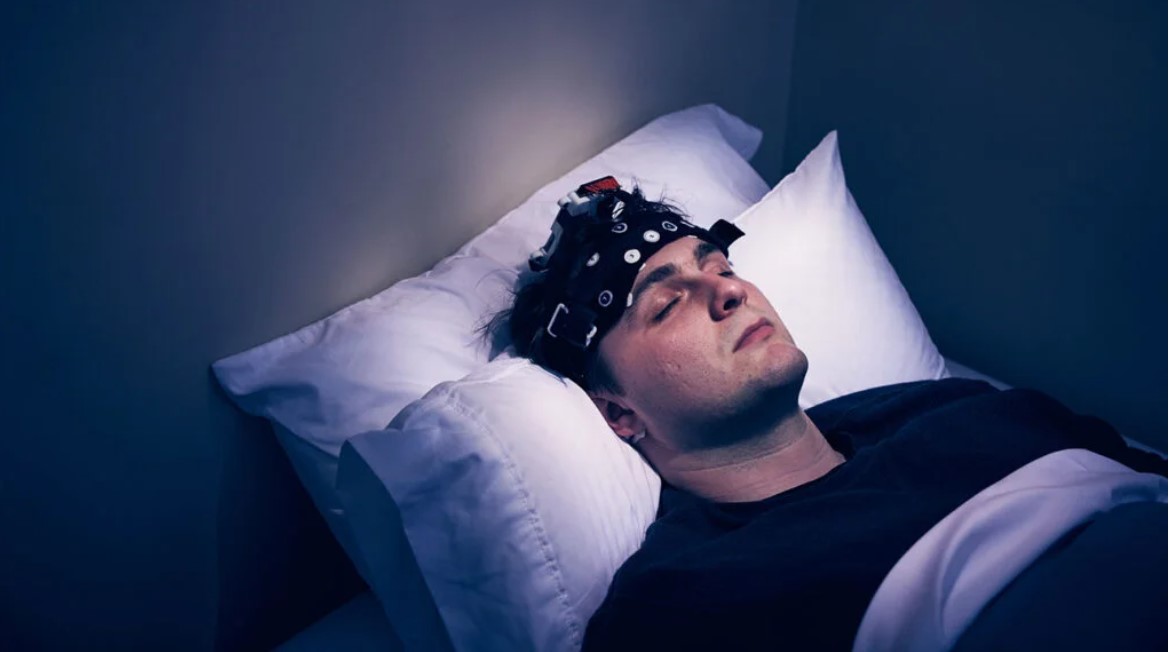
Sleep, a vital process for the body, holds significant implications for overall health and well-being. Extensive research supports the notion that sufficient sleep contributes to maintaining a healthy weight, promoting mental well-being, and reducing inflammation. Moreover, sleep plays a crucial role in bolstering memory functions. Disturbances in sleep patterns have been associated with an increased risk of developing dementia, as evidenced by previous studies.
Recently, a collaborative effort between researchers from Tel Aviv University and UCLA Health has yielded evidence that supports the prevailing theory concerning how the brain consolidates memories during sleep. Notably, the scientists discovered that deep-brain stimulation, administered during the deep sleep phase, enhances the brain’s ability to form memories. This groundbreaking study has been published in the esteemed journal Nature Neuroscience.
Delving into the concept of deep sleep, it is imperative to understand the various stages that the body progresses through during slumber. These stages include Stage 1, characterized by the onset of sleep and light non-rapid eye movement (REM) sleep; Stage 2, denoting deeper non-REM sleep as the body continues to relax; Stage 3, representing the longest stage of non-REM deep sleep; and Stage 4, known as REM sleep, during which vivid dreams occur, and one is closest to waking up. It typically takes around an hour from the onset of sleep to enter the deep sleep stage, and awakening during this phase is challenging.
Deep sleep is marked by slow brain wave activity, enabling the brain to rejuvenate and recuperate. Researchers strongly believe that deep sleep plays a pivotal role in facilitating healthy cognitive function and memory formation. This sleep phase also serves as the ideal period for the release of specific hormones responsible for tissue and muscle repair, bone regeneration, regulation of glucose metabolism, and maintenance of a robust immune system.
Experts in the medical field strongly advocate that adults obtain at least seven hours of high-quality sleep daily to ensure an adequate duration in the deep sleep stage. Sleep deprivation can result in a range of issues, such as fatigue, irritability, and difficulties with focus and memory. Furthermore, chronic sleep deprivation has been associated with an elevated risk of developing conditions such as Alzheimer’s disease, diabetes, cardiovascular disease, obesity, depression, and anxiety.
Deep-brain stimulation is a treatment method employed for specific brain disorders, including epilepsy, Parkinson’s disease, essential tremor, dystonia, Tourette syndrome, and obsessive-compulsive disorder. This therapy entails the implantation of electrodes into targeted brain regions, powered by a pacemaker-like device situated beneath the skin near the upper chest. The device’s settings are programmed by a physician to generate pulses delivered to the electrodes.
The correlation between deep sleep and memory formation presents an intriguing phenomenon, as explained by Dr. Jean-Philippe Langevin, a neurosurgeon and director of Restorative Neurosurgery and Deep Brain Stimulation Program for Pacific Neuroscience Institute at Providence Saint John’s Health Center. According to Dr. Langevin, certain neuroactivities in the brain exclusively occur during sleep, and these activities tend to correlate with the effectiveness of memory consolidation. He elucidates that the brain’s ability to focus on memory consolidation is heightened during sleep, as it is devoid of external stimuli. Conversely, during wakefulness, attention to stimuli and the execution of various cognitive functions may hinder optimal memory consolidation. Thus, the tranquility of nighttime provides an opportune moment for the brain to consolidate memories.
The study conducted by Prof. Yuval Nir, a principal investigator in the Schools of Medicine, Neuroscience, and Biomedical Engineering at Tel Aviv University, delved further into the relationship between sleep and memory using an innovative intervention that elucidates the role of synchronization between the hippocampus and cortex in the process. This investigation involved 18 participants with epilepsy who already had electrodes implanted in their brains for seizure identification purposes.
During the initial night, the participants were shown photo pairings of animals and recognizable celebrities. Subsequently, they were tested on their ability to recall these pairings before falling asleep. The following morning, their memory recall abilities were assessed after a night of undisturbed sleep. On the second and final night of the study, the participants were presented with 25 new animal and celebrity pairings, and simultaneous deep-brain stimulation was administered during their sleep. Memory recall tests were conducted once again the next morning.
The results of the study demonstrated that after a night of undisturbed sleep accompanied by deep-brain stimulation, the participants exhibited enhanced performance on memory tests compared to the first night of undisturbed sleep alone. Prof. Nir explains that their novel system, which monitors real-time electrical activity in and around the hippocampus during sleep, triggers stimulation pulses in the frontal lobe during specific periods of activity. This targeted stimulation facilitates efficient communication between different brain regions responsible for the creation and long-term storage of memories.
The implications of this research are far-reaching, particularly in the realm of dementia prevention and the treatment of other memory impairments. Dr. Nir posits that intervention during sleep represents a unique approach that holds promise for individuals suffering from memory deficits, including those with dementia. By augmenting the natural processes that occur during sleep, memory improvement can be achieved. Furthermore, key electrophysiological markers observed by the scientists provide tangible evidence of memory consolidation through the transmission of information between the hippocampus and cortex.
Dr. Langevin adds that the future potential of utilizing neuromodulation to enhance memory in patients with memory deficits, such as those with Alzheimer’s disease or traumatic brain injuries, is a captivating prospect. The notion is that neuromodulation could bypass impaired neural activity associated with the regular mechanisms of memory formation and consolidation, ultimately yielding favorable memory function.
In summary, the recent study conducted by researchers from Tel Aviv University and UCLA Health sheds light on the intricate relationship between sleep and memory. By administering deep-brain stimulation during the deep sleep phase, the researchers have successfully enhanced memory formation. These findings hold significant implications for individuals with memory impairments, paving the way for potential advancements in dementia prevention and memory-related treatments.


